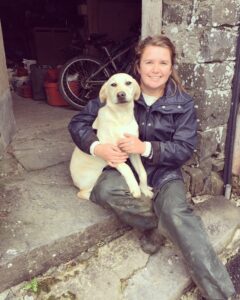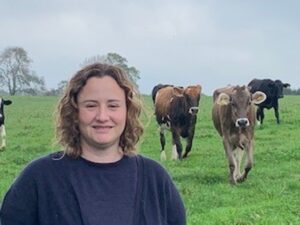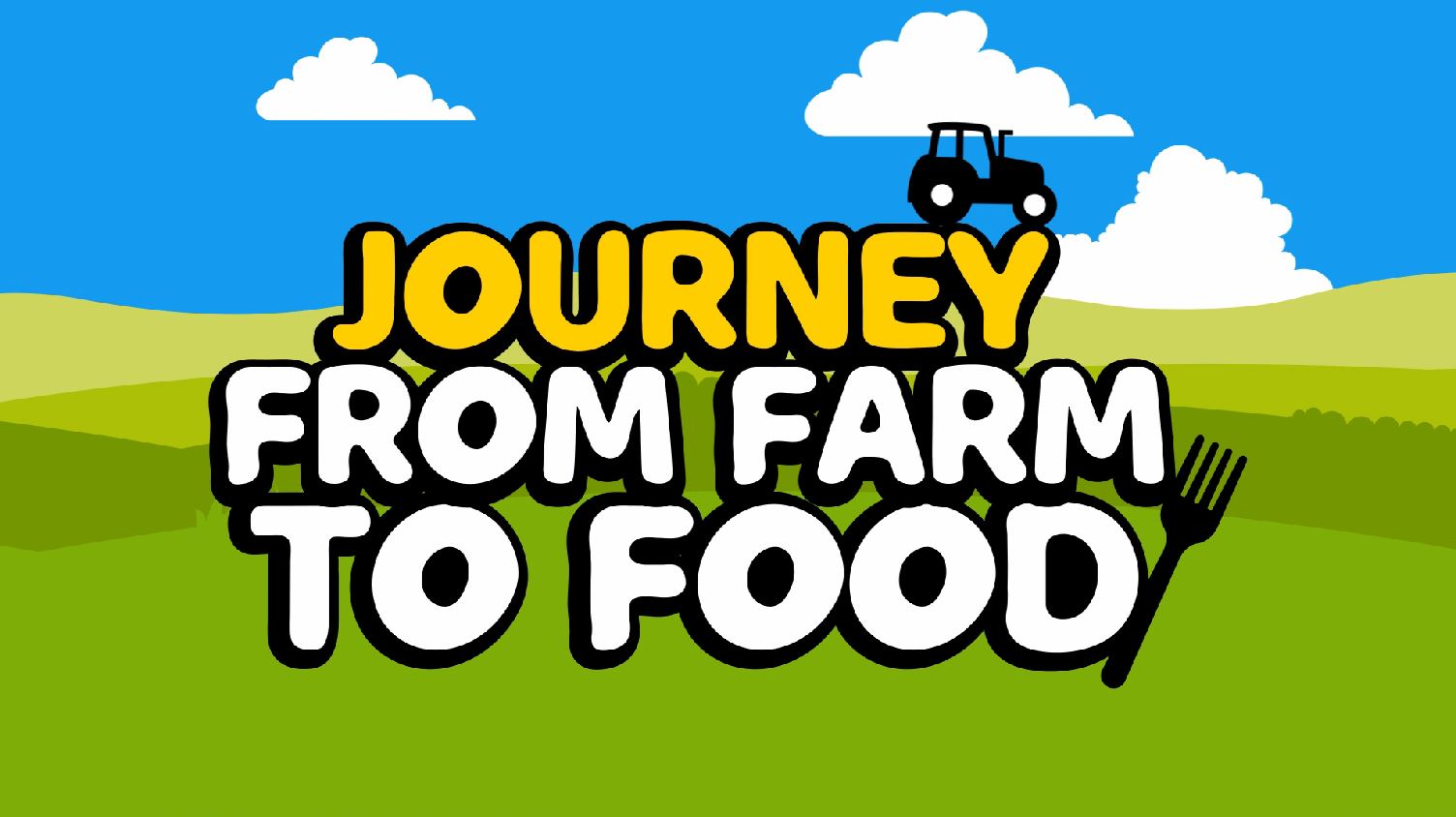HCC also supports postgraduate studentships linked to industry research projects.
Post Graduate Students
Title: Design and development of a Targeted Selective Treatment (TST) strategy for nematodes in peri parturient ewes
Gastro-intestinal nematodes are a major threat to food security as their infections impact sheep health and welfare, greenhouse gas emissions, sustainable livestock production and farm profitability. Their threat is increasing due to anthelmintic resistance and climate change, where milder winters are allowing more nematode species to survive the winter and for the timeframe of their infections to increase. To alleviate this threat to the agricultural industry and other parts of the meat supply chain, it is imperative that sustainable targeted selective treatment (TST) strategies are designed to reduce farmers’ reliance on anthelmintic drugs to control nematode infections whilst limiting disease impact.

Numerous novel TST strategies have been successfully developed to control nematode infections in lambs, however, research into sustainably controlling nematode infections in ewes remains limited. Successful and sustainable control of nematode infections in ewes is crucial, especially during the peri-parturient period where immunological relaxation associated with the stress of lambing allows inhibited nematode larva in the abomasum and intestinal walls to become active causing disease and becoming an important source of egg pasture contamination for future lamb infections.
Therefore, the aim of this PhD is to design molecular and computational modelling techniques to develop a novel targeted selective treatment strategy for controlling nematode infections in ewes during the peri-parturient period.
This PhD is funded through the Knowledge Economy Skills Scholarships (KESS 2) scheme. KESS 2 is a pan-Wales higher-level skills initiative led by Aberystwyth University on behalf of the HE sector in Wales. It is part-funded by the Welsh Government’s European Social Fund (ESF) convergence programme for West Wales and the Valleys. Eiry is collaborating with HCC on this project.
Research Partner: University of Liverpool
Project Duration: October 2019 – December 2023 (4 Years)
BBSRC DTP CASE PhD Student: Emily Herschell-Kelly
The prevalence of Fasciola hepatica, the common liver fluke, is increasing in the UK. Liver fluke with its broad host species range is a cause of major concern due to the infections impact on livestock productivity and animal welfare. The threat of liver fluke infection in the UK is increasing due to the changing climate which facilitates the development of the snail intermediate host, Galba truncatula.
The primary method of F. hepatica control is achieved through regular anthelmintic treatments, particularly triclabendazole (TCBZ). As the development of TCBZ resistance becomes more extensive, alternative flukicides are being relied upon, such as closantel and albendazole, which are often used as whole herd treatments several times throughout the year. The frequent use of these drugs raises the prospect of the development of multi-drug resistance.
A composite faecal egg count (cFEC)has been validated for TCBZ resistance and can be used in the field. However, performing cFEC tests for closantel and albendazole are more complex given that these drugs do not target all parasite stages within the host. Similarly, wat the gentic level, whilst we are starting to identify regions of the F. hepatica genome involved in TCBZ resistance, our understanding of the mechanisms of closantel and albendazole remain limited.
The aim of this PhD is to help develop in vitro (e.g cFEC) tests to detect closantel and albendazole resistance in the field and to explore the process of genetic selection in liver fluke populations as a consequence of the regular use of flukicides. This will ultimately allow for improved farming management practices and thereby reduce the amplification of resistance within fluke populations on farm.
This PhD is funded through the Biotechnology and Biological Sciences Research Council Doctoral Training Partnership (BBSRC DTP). The BBSCR DTP aims to offer PhD training in various relevant areas of research which are related to the UKRI-BBSRC’s areas of interest. This DTP is a collaborative project between the University of Liverpool and the HCC.
Title: Determining the potential for precision grazing to improve the resilience of livestock production systems
 Grass has been to shown to be the cheapest feed to provide ruminant systems and can have the least environmental impacts. However, there remains huge variability in the quantity, quality and utilisation of grass grown on farms, much of which is down to management. The ‘lost’ feed has to be replaced with imported soya or grain, which increases the economic and environmental burden of production systems.
Grass has been to shown to be the cheapest feed to provide ruminant systems and can have the least environmental impacts. However, there remains huge variability in the quantity, quality and utilisation of grass grown on farms, much of which is down to management. The ‘lost’ feed has to be replaced with imported soya or grain, which increases the economic and environmental burden of production systems.
Studies estimate that 50% of grass grown on UK farms is wasted, which has implications for nutrient use and greenhouse gas (GHG) emissions. Some systems (e.g. rotational grazing) have been shown to utilise 60-70% of grass grown, whilst the newer ‘cell grazing’ systems can reportedly utilise 90% of grass grown. Such difference would have hugely significant implications for both the environmental footprint and cost of meat production. It would also allow production of an equal (or greater) quantity per hectare of land, meaning that poorer quality land could be used to ‘offset’ emissions, e.g. through the planting of trees.
Using a cluster of study sites, this project will determine the economic and environmental cost-benefits of different grazing systems for lamb and beef production systems.
The findings from the project will be used at different levels to generate novel outputs:
- The economic and environmental ramifications of improved grassland utilisation for livestock systems will be estimated at the farm scale;
- The results will then be scaled up to the national level, evaluating the net effect on Welsh GHG emissions and the resilience and economic performance of livestock farms;
- Lastly, the potential of such grazing management to attract further funds in terms of payment for ecosystem services will be assessed using a model upland and lowland farm.
This PhD is funded through the Knowledge Economy Skills Scholarships (KESS 2) scheme. KESS 2 is a pan-Wales higher-level skills initiative led by Bangor University on behalf of the HE sector in Wales. It is part-funded by the Welsh Government’s European Social Fund (ESF) convergence programme for West Wales and the Valleys. Joe is collaborating with HCC on this project.
Title: Strategies to reach zero carbon sheep and beef production on Welsh farms.
The red meat sector is under considerable pressure from consumers and legislators to reduce its environmental impacts.
As the red meat sector is challenged to more towards carbon neutrality, there is an urgent need to both reduce emissions, and to better quantify the opportunities for Greenhouse Gas (GHG) abatement via off-setting or sequestration.
 Through close collaboration with HCC, the project will involve annual gathering of data via a combination of face-to-face meetings and self-reported information on representative farms across Wales. Farms will be chosen that are typical of lamb and beef production systems that Wales (and indeed much of Western Europe) has (e.g. upland/lowland, large/small, in different climate regions). This will allow us to extrapolate the results to the national scale and ‘map’ the findings onto the new HCC environmental roadmap, ‘The Welsh Way’.
Through close collaboration with HCC, the project will involve annual gathering of data via a combination of face-to-face meetings and self-reported information on representative farms across Wales. Farms will be chosen that are typical of lamb and beef production systems that Wales (and indeed much of Western Europe) has (e.g. upland/lowland, large/small, in different climate regions). This will allow us to extrapolate the results to the national scale and ‘map’ the findings onto the new HCC environmental roadmap, ‘The Welsh Way’.
The project will evaluate the effects of mitigation strategies on productivity, expressing results via the conventional GHG/unit product and per ha, but also via new metrics and in relation to alternative functional units, e.g. to consider GHG emissions per unit protein, or per nutrient density unit. This will allow us to model pathways of sustainable intensification towards net-zero-carbon pasture-based systems.
This PhD is funded through the Knowledge Economy Skills Scholarships (KESS 2) scheme. KESS 2 is a pan-Wales higher-level skills initiative led by Bangor University on behalf of the HE sector in Wales. It is part-funded by the Welsh Government’s European Social Fund (ESF) convergence programme for West Wales and the Valleys. Louise is collaborating with HCC on this project.
Title: Quantifying livestock behaviour for disease detection using precision livestock monitoring technologies.
 Early disease detection is crucial to provide prompt and correct treatment of livestock and to maximise health, welfare and productivity. However, detecting disease early and accurately is challenging, and often, significant production losses have occurred before clinical symptoms are observed. Furthermore, difficulties in accurately detecting diseases early has led to routine blanket treatment of livestock with antibiotics and anthelmintics which has contributed to the rapid development of resistance in pathogens.
Early disease detection is crucial to provide prompt and correct treatment of livestock and to maximise health, welfare and productivity. However, detecting disease early and accurately is challenging, and often, significant production losses have occurred before clinical symptoms are observed. Furthermore, difficulties in accurately detecting diseases early has led to routine blanket treatment of livestock with antibiotics and anthelmintics which has contributed to the rapid development of resistance in pathogens.
In recent years, it has been demonstrated that precision livestock technologies have the potential to improve disease detection within the livestock production industry. Precision technologies such as sensors or bio-sensors are likely to change the way that farmers, scientists and veterinarians detect and treat livestock diseases. Such sensors have the potential to measure livestock behaviour 24 hours a day, which can enhance good livestock husbandry in modern production systems especially as the number of farm staff decrease in relation to herd and flock size.
Becca Roberts will build on previous research on precision livestock technologies, parasitology and livestock performance at IBERS. The PhD will aim to evaluate precision technologies (e.g. GPS trackers and accelerometers) to uncover changes in the behaviour of sheep and cattle that are associated with significant changes in health status.
The PhD will particularly focus on:
- Researching the engagement vets have with precision livestock technologies out on farm
- Tracking pregnant ewe general and feeding behaviour using state of the art tracklab animal tracking sensors.
- Remote monitoring of lamb behaviour using accelerometers to identify future decreases in growth rates, health status and those that will benefit from anthelmintic treatment.
- Monitoring beef calf feeding and general behaviour to determine health status.



